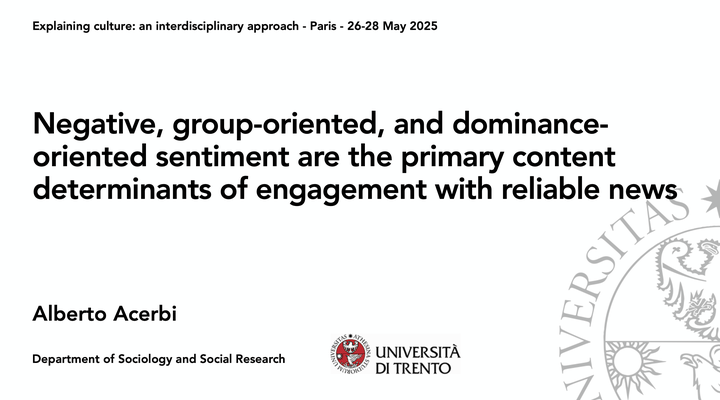Negative, group-oriented, and dominance-oriented sentiment are the primary content determinants of engagement with reliable news

Abstract
Research on improving people’s information diets often focuses on misinformation. However, only a small fraction of online content is misinformation, and despite the abundance of accurate information, people are often overskeptical or uninterested, leaving them uninformed rather than misinformed. We therefore examine what content drives engagement with reliable information, using tweets from 140 trusted news accounts on X (formerly Twitter). We find that negative, group-oriented, and dominance-oriented content are consistently the best predictors of engagement, positive content specifically predicts likes, and the effect of threat-related content varies depending on engagement type (e.g., likes vs. replies). We also examine the content of replies and quotes and find it usually mirrors and amplifies the sentiment of the original tweets (e.g., positive/negative/polarizing tweets generate more positive/negative/polarizing responses). These results suggest that, like misinformation, factual news exploits evolved cognitive biases, which highlights the importance of considering cultural evolution to understand how online information spreads.